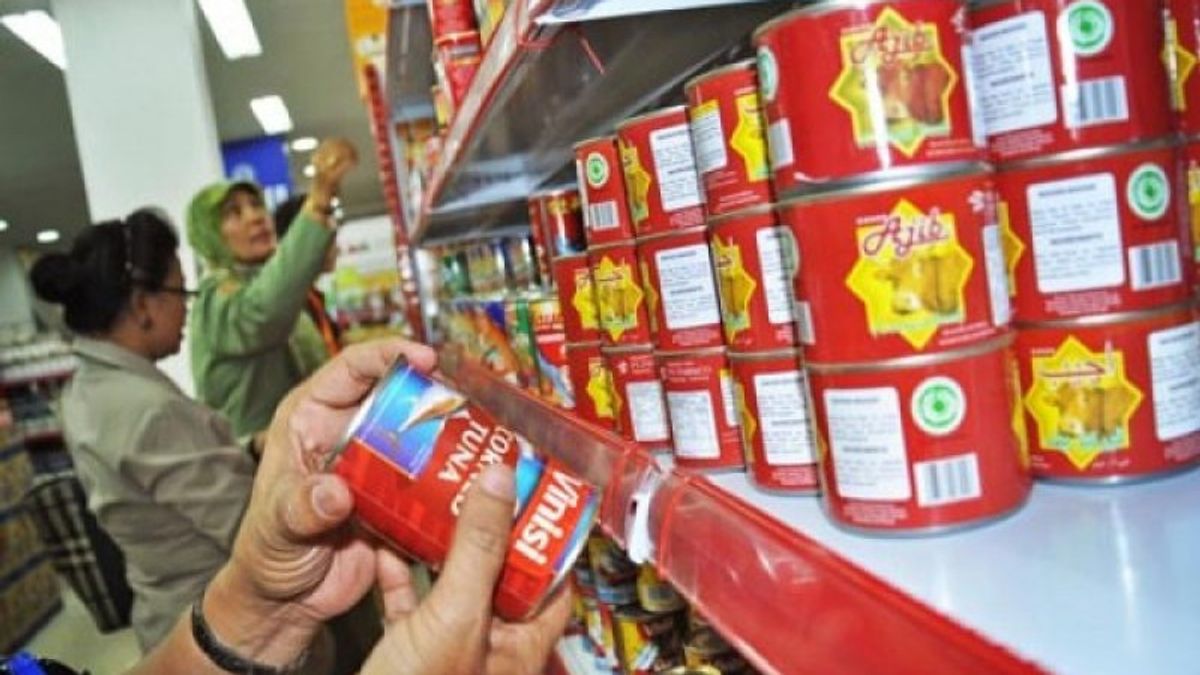JAKARTA - Digitalization is the key for the food and beverage industry (mamin) to be able to apply the principle of sustainability. This is in line with the ideals of implementing industry 4.0.
The Director General of Agro Industry at the Ministry of Industry, Putu Juli Ardika, said that sustainability, transparency, and conventional are challenges currently faced by the food and beverage industry.
"In addition to compliance with applicable standards, such as SNI, halal certificates, and other standards set by BPOM," he said, quoting Antara.
In the food and beverage industry, consumers are considered not only to want healthy products, but also to pay attention to the sustainability and transparency of a product.
With digital transformation, industrial companies will be able to predict consumer behavior, thus supporting the competitiveness of the products produced.
According to Putu, the food and beverage industry can meet the criteria for sustainability through the use of environmentally friendly packaging and sustainable raw materials.
Another form of this effort is the establishment of a packaging recycling industry by producer mamin. Putu said this was an initiative that should be appreciated.
Furthermore, transparency needs to be continuously improved by industry players, for example regarding raw materials, doses, and production processes. Transparency can be realized through the delivery of this information in detail. This can be supported by digital platforms.
"As for convenience or convenience for consumers, food and beverage manufacturers can provide various options in obtaining products as desired, such as on-the-go options, single-use packaging, booking options and online delivery," explained Putu.
Another trend that the food and beverage industry needs to follow is the consumer's need for product personalization. Consumers now want products that can be customized, unique, and fit into their respective personalities.
In this case, the application of digital technology allows manufacturers to predict consumer behavior.
This is done by collecting and analyzing large amounts of data from various sources, such as online purchases, social media, and search engines.
"Advanced analytics tools and algorithmic machines studying behavior can be used to identify patterns and trends in these data, thus providing valuable insights into consumer preferences and shopping habits," said Putu.
One of the relevant examples is how data from online food and beverage purchases, both from delivery services through online transportation applications, marketplaces, and social media can be collected into big data and analyzed further so that they can predict consumer behavior and identify consumer trends.
However, the food and beverage industry company is also still experiencing problems in producing personal products. One of them is as stated by the Head of Manufacturing of PT Greenfields Indonesia Darmanto Setyawan.
He stated that product personalization is a challenge for producers. If the company provides products that serve various age groups, while a person's nutritional needs will vary at every stage of life, this can cause the company's stock keeping unit (SKU) to increase exponentially.
"Managing the increase in SKU is related to inventory materials, formulations, production and scheduling planning as well as efficiency due to material losses and changes over time are very complex. The impact is that it requires more control of raw material validation, process control in production and the need for greater transparency, including traceability," said Darmanto.
However, steps to digitize the food and beverage industry continue to be taken to achieve product personalization. Greenfields has started to implement digitization in the production process, for example through the use of quality management systems to determine the fat content of raw milk.
This helps the company decide which products will be produced from the perspective of planning and production scheduling.
"With quality control planning collaboration and production processes, this digitally obtained information also helps in shortening product release time to market," he continued.
In addition, digital solutions also help increase efficiency in production. For example, to control the expiration of materials and documentation such as standards and halal certificates.
"Digitalization also helps in managing and automating the testing and monitoring schedule in the process. This is done through sampling and recording all tests for each batch of raw materials, materials in the process/half-finished, and final products," explained Darmanto.
The English, Chinese, Japanese, Arabic, and French versions are automatically generated by the AI. So there may still be inaccuracies in translating, please always see Indonesian as our main language. (system supported by DigitalSiber.id)













